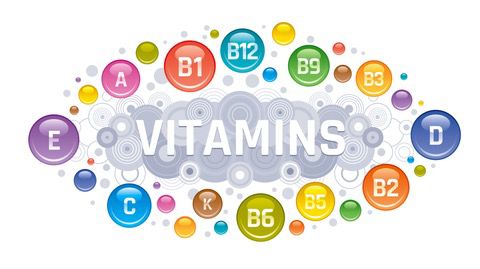 Image Source: Mountainside Medical
Image Source: Mountainside Medical
Introduction
Despite India’s rapid progress in healthcare and nutrition awareness, vitamin deficiencies remain alarmingly common. From Vitamin D shortages in urban professionals to iron deficiency anemia in rural women, the issue cuts across demographics. Experts highlight that modern diets, lifestyle choices, and lack of balanced nutrition are fueling the problem. Interestingly, Ayurveda—India’s ancient system of medicine—is being revisited as a natural, holistic approach to tackling these persistent health gaps.
Key Highlights
• India continues to face widespread vitamin deficiencies despite economic growth
• Vitamin D, B12, and iron remain the most common deficiencies across age groups
• Modern dietary habits and processed food consumption worsen the problem
• Ayurveda provides plant-based, natural, and lifestyle-oriented solutions
• Experts recommend integrating both modern nutrition and Ayurvedic wisdom for sustainable health outcomes
Why Deficiencies Persist
• Urbanization and sedentary lifestyles limit sun exposure, leading to Vitamin D deficiency in nearly 70–80% of Indians
• Vegetarian and vegan diets, while healthy, often lack sufficient Vitamin B12, found mainly in animal products
• Iron deficiency anemia affects over half of Indian women, exacerbated by poor dietary diversity and cultural eating habits
• Reliance on packaged, calorie-dense but nutrient-poor foods creates a paradox of plenty—people eat more but nourish less
• Lack of awareness and irregular health check-ups delay early detection and intervention
Ayurveda’s Natural Lens On Healing
• Ayurveda emphasizes balance in diet, lifestyle, and mental wellbeing as the foundation of health
• Herbs like amla (Indian gooseberry) and moringa are recommended for Vitamin C and iron supplementation
• Sun exposure at specific times of the day is advised as a natural remedy for Vitamin D deficiency
• Ghee, sesame seeds, and certain lentils are highlighted as nutrient-rich staples for maintaining vitality
• Ayurveda treats deficiencies not in isolation but as signs of broader imbalances in the body’s systems
Practical Solutions For Daily Life
• Experts suggest beginning mornings with warm water infused with herbs like tulsi or lemon for better absorption of micronutrients
• Including seasonal fruits and vegetables, rather than imported or off-season produce, ensures fresher, more bioavailable nutrition
• Mindful eating practices—chewing slowly and avoiding overeating—enhance digestion and nutrient absorption
• Yoga and pranayama (breathing exercises) are recommended to improve metabolism and support internal balance
• Regular use of Ayurvedic supplements, under guidance, can provide safe, long-term benefits compared to synthetic alternatives
Bridging Modern And Traditional Wisdom
• Nutritionists argue for a middle path: while modern medicine ensures precise diagnostics, Ayurveda offers preventive and sustainable practices
• Government initiatives like fortification of foods (iron-fortified rice, iodized salt) are steps forward but not sufficient alone
• Community-level awareness, rooted in traditional practices like balanced thalis (platters) with diverse grains and legumes, can make a significant difference
• Doctors recommend viewing Ayurveda not as a replacement but as a complement to conventional healthcare, particularly for lifestyle-linked deficiencies
Conclusion
India’s vitamin deficiency crisis isn’t just about lack of resources—it’s about imbalance. While modern lifestyles and diets have disrupted traditional nutrition patterns, Ayurveda’s time-tested wisdom offers natural, practical solutions to restore equilibrium. By integrating modern science with ancient practices, India can move from merely treating deficiencies to nurturing true holistic health. The challenge lies not in access but in awareness and adopting small, consistent changes that heal from within.
Sources: Times of India, The Hindu, Indian Journal of Community Medicine
Advertisement
Advertisement







